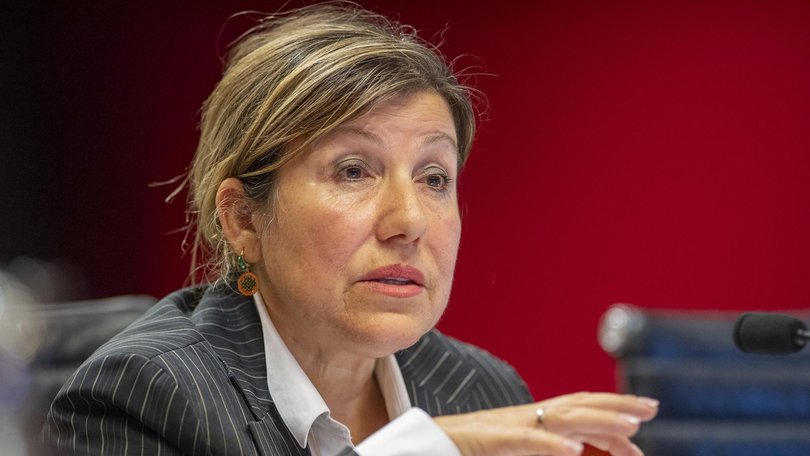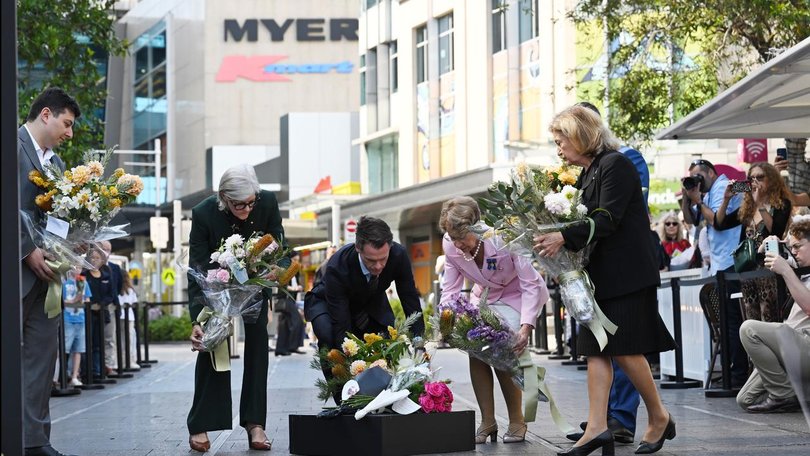NSW leads a backlash against the workplace mental harm epidemic

Sydney high school teacher Timothy Doherty left his classroom seven years ago and never returned.
Suffering paranoia and depression, after a brief unauthorised absence from work he was placed on a workers’ compensation scheme for NSW public servants.
He was paid for four-and-a-half years until the Government concluded, after four medical examinations, he was not capable of teaching in its schools again.
Sign up to The Nightly's newsletters.
Get the first look at the digital newspaper, curated daily stories and breaking headlines delivered to your inbox.
By continuing you agree to our Terms and Privacy Policy.Mr Doherty is one of many people who help explain why the NSW Labor Government plans big changes to workers compensation rules, a shift that reflects an official backlash against an epidemic of workplace mental harm.
Workers compensation insurance was introduced 100 years ago to help working-class men injured in the largely unregulated world of factories, workshops, mines and docks. Over the decades, it morphed into a system supporting office workers suffering a problem once considered a normal-if-regrettable part of life: emotional stress caused by professional pressure and conflict.
“There is no doubt mental health is a societal issue, but the increase in psychological claims would indicate that the system has become a place where industrial relations and general health issues are being managed through a system that was designed to support those injured at work to recover and to return to work,” NSW Industrial Relations Minister Sophie Cotsis told a parliamentary committee this month.

Twice as many claims
In NSW psychological injury claims have doubled in six years. The cost has risen from $146,000 per person to $288,542 over five. Almost 90 per cent of physically injured workers resume work within 13 weeks. Forty per cent of those with mental problems are still living off workers compensation payments after a year off.
Without change, the scheme will require a $2 billion capital investment and 36 per cent increases in premiums charged to business, according to Premier Chris Minns.
The NSW Parliament is this week debating big changes to workers compensation rules. The Government wants to raise the threshold at which payments for psychological injury cut in to 31 per cent from 15 per cent of workers’ impairment. In simple terms, if mental trauma has made a person 25 per cent less capable, they will not be able to rely on workers compensation for the rest of their life.
Other changes are planned too.
It would be harder to receive compensation for vicarious trauma, when a person is upset by seeing or hearing about another’s harm.
This is often a problem for social workers, police officers and paramedics. Bullying and harassment complaints would have to be fought in the courts before being considered by a workers compensation insurer.
Opposition
Supporters of the changes say disturbed people often become socially isolated and benefit from returning to work. Opponents say depression is a profound injury that should not be penalised.
The changes are unpopular with unions, lawyers, doctors and mental health advocates. “This draft law is built around the idea that workers are faking it,” said Chris Gambian, the executive director of Australians for Mental Health.
Unions protested outside State Government offices in central Sydney last week. One official said shop assistants from a Westfield shopping centre in Bondi Junction where seven people were killed in 2024 could be denied compensation.

To make the changes more palatable, the government has promised to spend $344 million more to fight the problem, including hiring 50 workplace inspectors who specialise in psychological injuries.
Fairly dismissed
Even though business groups strongly support the plan, the Liberal-Nationals opposition has promised to vote against the law unless changes are made. Its demands include one of the most important parts of the law: the higher threshold for payments for psychological injuries.
“We can’t support a bill which is mean and nasty,” Liberal MP Kellie Sloane said on Tuesday. “In introducing this bill Labor has lost its conscience when it comes to injured workers.”
The Greens oppose the changes, which means the law may be defeated in the upper house, where the Government does not have a majority.
As for Mr Doherty, the depressed teacher unsuccessfully sued the NSW Education Department for unfair dismissal. In a hearing of the NSW Industrial Relations Commission, he denied knowing who paid him a $40,000 medical-termination payment, even though his bank statement identified the payee as the Education Department.
He lied to his workers compensation scheme, the commission also found, by not disclosing he was paid for private tutoring.

